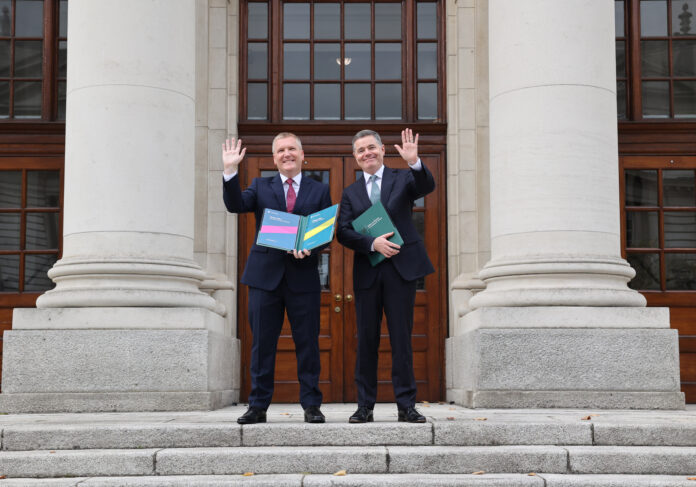
WORKERS, renters, and those in receipt of social welfare payments are among the main groups who saw the greatest benefit from Budget 2024.
Finance Minister Michael McGrath announced a budget package of €14billion to help people as the cost of living remains stubbornly high.
The weekly core rate of all social welfare payments will rise by €12 per week starting in January, meaning those on a state pension, jobseekers allowance, and disability allowance will all see their weekly payments rise.
There will also be a double payment of social welfare in January, as well as the Christmas bonus to be paid in December.
There will be a double payment of the child benefit, and a €200 bonus for those on the Living Alone Allowance, €400 for people getting the Carers Support Grant, €400 for those on the Disability Support Grant, €400 on the Working Family Payment, a €300 bonus on the Fuel Allowance, and €100 for people receiving the Qualified Child Increase.
The renters credit will also be increased from €500 to €750 to help renters cope with the high cost of rent.
Workers could be up to €800 better off due to a reduction in the Universal Social Charge (USC), as well as changes to the income threshold for the top rate of tax.
The entry point for the top rate of tax will rise from €40,000 to €42,000.
The Government announced that the rate of USC that workers pay will drop from 4.5 per cent to four per cent, while PAYE tax credits will increase by €100.
This would mean that a worker earning €50,000 per year would have an extra €800 back in their pockets.
The minimum wage will rise by €1.40, bringing it up to €12.70 an hour.
Mortgage holders will also benefit with a €1,250 tax relief announced for those who have been hit by interest rate hikes imposed by the European Central Bank (ECB).
Homeowners will receive 20 per cent of the cost of the interest rate hikes imposed between 2022 and this year, and can apply for this through Revenue’s Online Service.
Parents will also see childcare costs cut by an average of 25 per cent, however this won’t take affect until September 2024.
Households will also get a total of €450 worth of energy credits, paid in three €150 instalments.
A free schoolbooks scheme for secondary school students up to the Junior Cert will be introduced by Education Minister Norma Foley, meaning first, second, and third year students will receive free schoolbooks from September 2024.
Free copybooks, calculators, dictionaries, and other classroom items will also form part of this scheme.
There will be a once-off reduction in the student contribution fee of €1,000 for third level students.
Public transport cost reductions will be extended and the age limit for the young adult Leap Card will also increase, allowing young adults aged from 19 to 25 avail of a 50 per cent cut in transport costs.
Petrol and diesel won’t see any increases, while a planned increase of excise duties that was due to take effect from the end of October will also be delayed.
A packet of 20 cigarettes will increase by 75c, while there will be no increase to the cost of alcohol.
Small and medium businesses will be able to avail of a rebate to get up to 50 per cent of their commercial rates back, a measure that’s expected to help over 130,000 businesses across the country under a €250million package to help businesses cope with the minimum wage increase.
In an effort to tackle anti-social behaviour, there will be a 25 per cent increase in Garda overtime, with funding to increase from €105million to €135million.
Trainee guards will also see an increase to their training allowance, which will rise to €305 a week.










